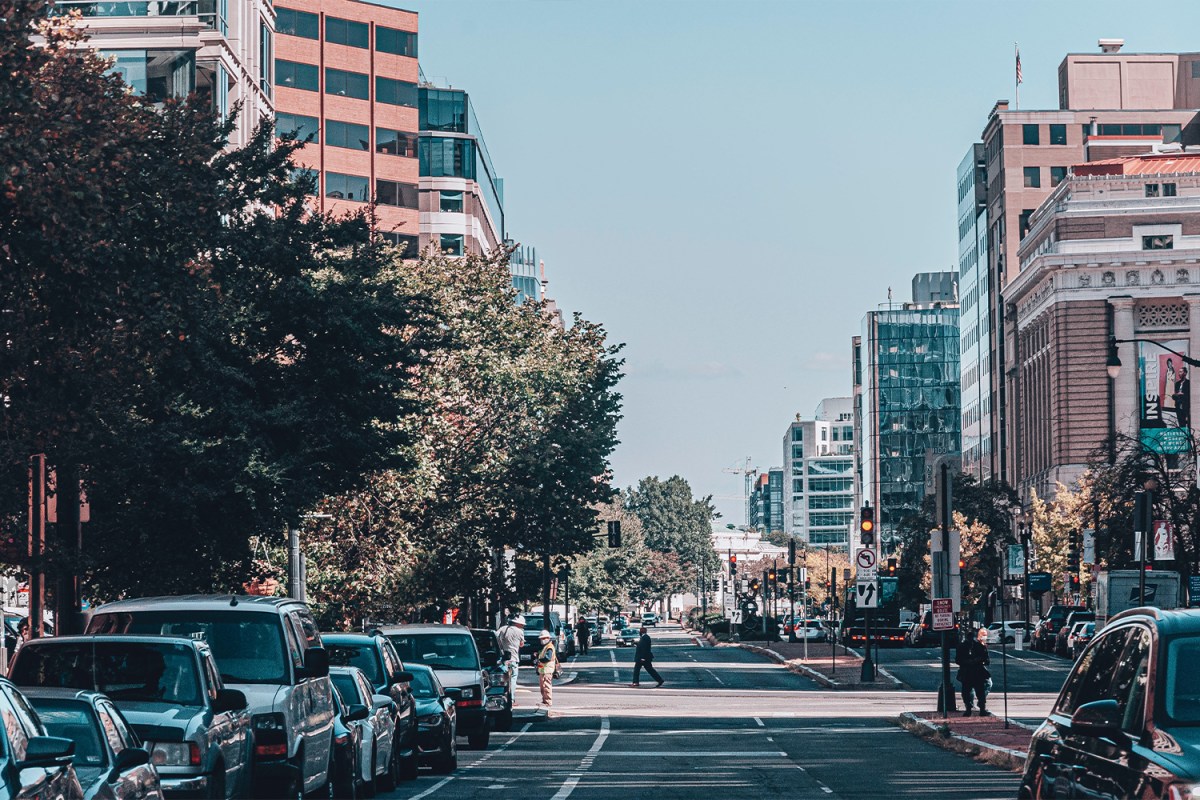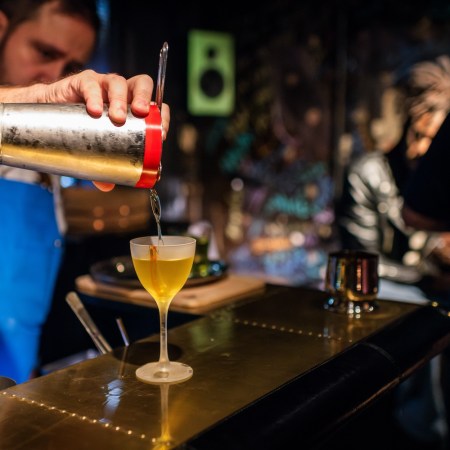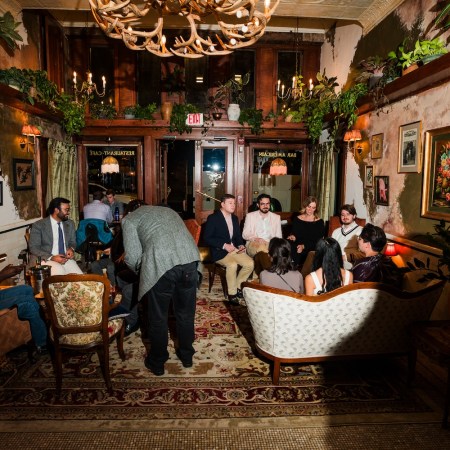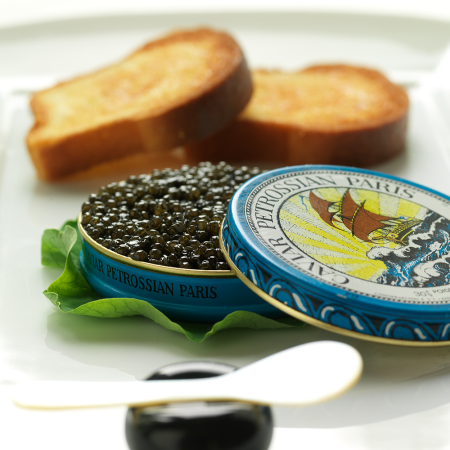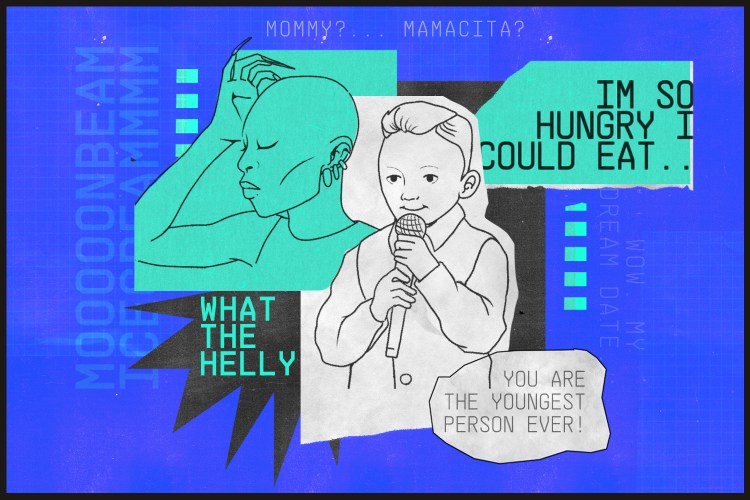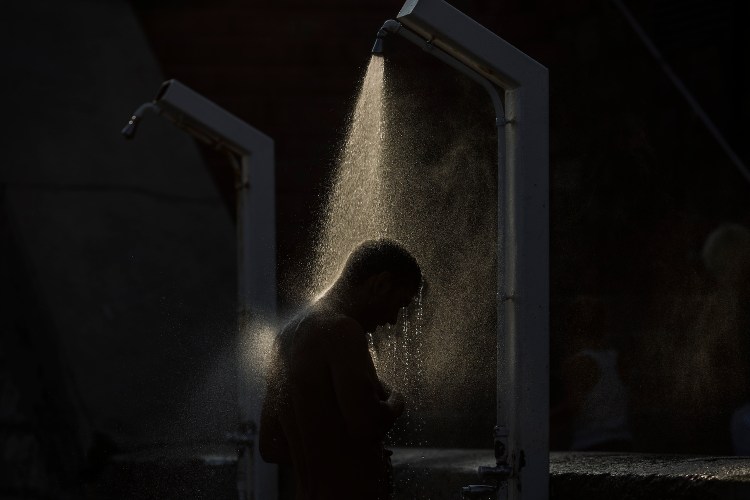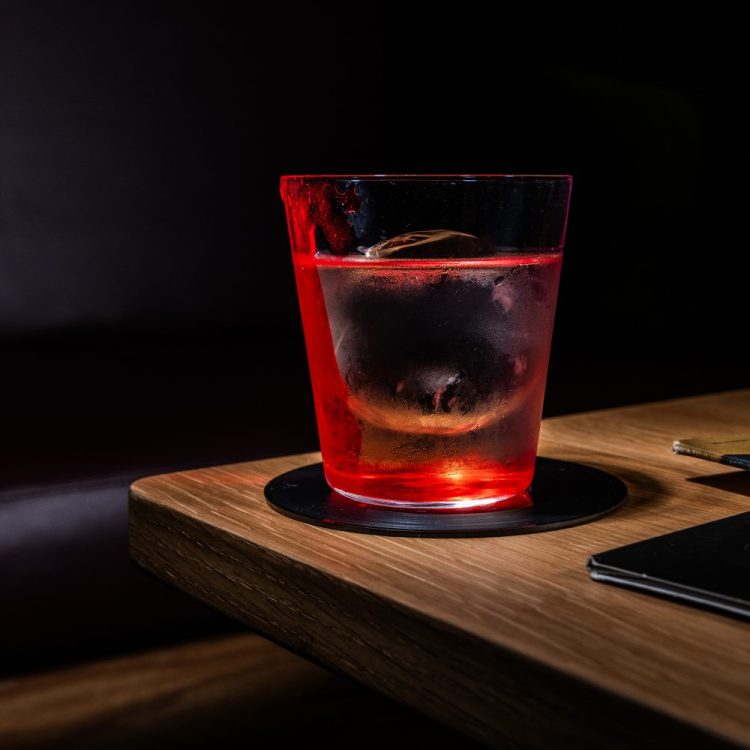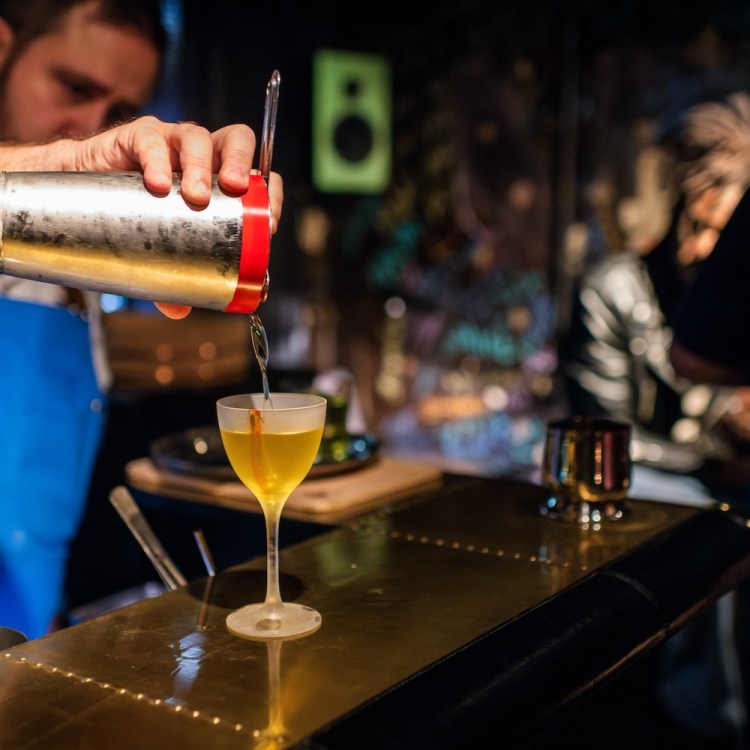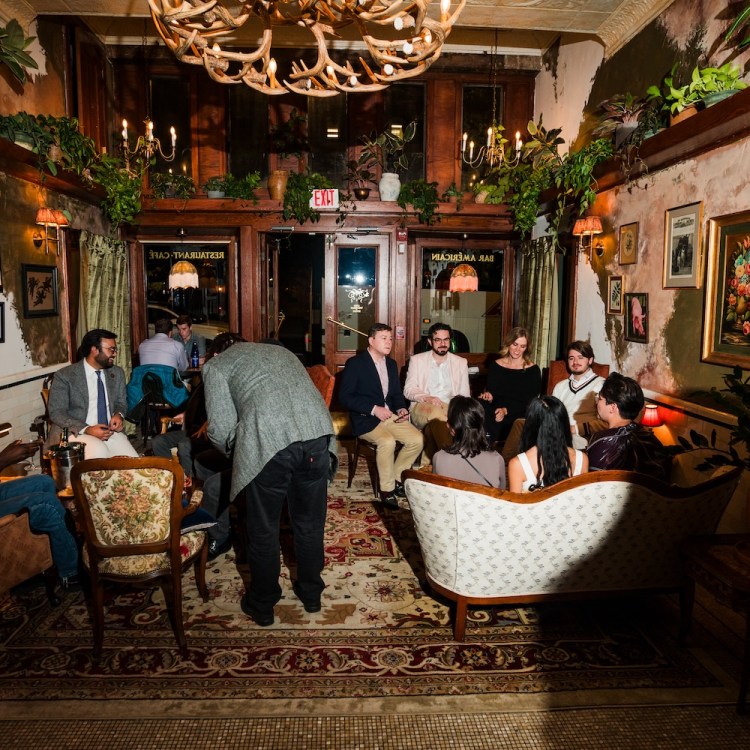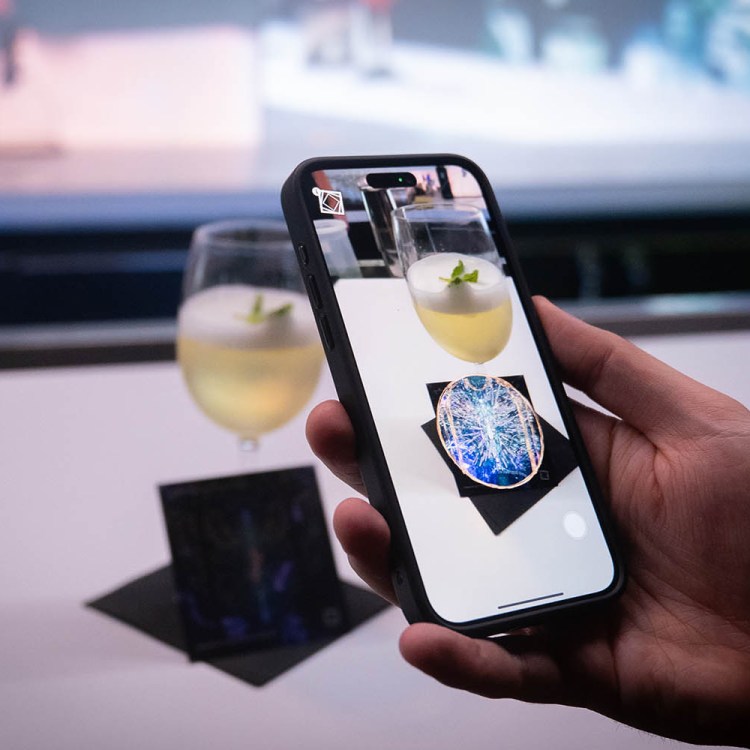It’s been over a year now since Mayor Muriel Bowser ordered the temporary closure of non-essential businesses — a very long year.
During the last 365 days — which have felt more like 365,000 — businesses have been through the absolute wringer. Some of the city’s longest-running establishments, like Howard’s Deli, Cafe Montmartre and DC dive bar royalty The Big Hunt have all been forced to permanently shutter.
Virginia Ali, longtime owner of Ben’s Chili Bowl, told InsideHook that the last year has represented the hardest time in the history of her business, since opening back in 1958.
According to Opportunity Insights, more than 43 percent of DC businesses closed permanently or temporarily over the last year, while total small business revenue decreased by over 61 percent. A count by DCist and WAMU found that at least 237 brick-and-mortar businesses have closed permanently in the city since the first known case of coronavirus was reported on March 7 of last year.
Shawn Townsend, the Director of the Mayor’s Office of Nightlife and Culture, said “Losing those businesses to me means we have vacant spaces throughout the city, and for landlords and residents of these communities and these corridors … that’s something that you never really want to see. You don’t want to see your coffee shop or your favorite restaurant in your community have to close its doors.”
Prior to the pandemic, Townshend reports that 97 percent of the restaurants in DC were locally owned. As things start to reopen, he’s seen a renewed diversity among burgeoning business owners, but also the opening of chain establishments like The Cheesecake Factory, which are inherently more pandemic-proof.
“I’m seeing a little bit of everything. I am seeing new entrepreneurs, especially more Black and brown potential operators, interested in joining the space. I am seeing landlords give breaks on commercial rent, so there are some benefits that will come out of the pandemic.”
New beginnings
A recently published report by the DC Policy Center shows a surprising trend that backs Townshend’s words: new businesses have been sprouting up quickly to replace the ones that were forced to shutter.
The District has outpaced new business openings in both Maryland and Virginia, adding 1,951 of the 2,396 net new establishments that opened in the region between September 2019 and September 2020. While most of them are in categories such as professional and business services, even the leisure and hospitality sector saw 40 new establishments open despite the intense struggles of the past year.
The report also dug into a comparison of business applications and unemployment data, whose results suggest that the positive trend is being driven by individuals identifying new business opportunities during the pandemic. Historically, the entrepreneurs who drive DC’s startup culture are also women, immigrants and people of color, and they are more likely to fund new ventures out of their own pocket versus turning to a bank for help.
One of those entrepreneurs is former restaurateur Carlie Steiner, who, in her mid-twenties, opened what would become Eater’s Restaurant of the Year in 2017. Since co-owning Himitsu with Kevin Tien, Steiner has gone on to open two more establishments and be named on the Forbes 30 Under 30 List. After all that, she’s decided to go in a different direction.
“There’s a running joke in the [restaurant] industry that it’s cool to not have work-life balance. It’s like really cool to not get enough sleep, and it’s cool to not be drinking enough water, and to be stressed out. It’s not something I ever related to,” says Steiner. “So, not being around that has been really good for me. I’ve found that I’m actually good at a bunch of things — I’m not just good at running a restaurant or bartending.”
Steiner had already perfected the pivot before the coronavirus reared its ugly head. When Himitsu co-owner Tien left to pursue his own solo venture, she kept the space and turned it into a whole new concept, named Pom Pom. But though it garnered glowing reviews from the likes of Washington Post food critic Tom Sietsema, the small 25-seat restaurant was not built for limited capacity, and thus the rules stipulated by DC’s reopening protocols.
“We would have had four seats, literally,” she says.
So, instead, Steiner made the difficult decision to close up shop at both Pom Pom and the wine bar she co-owned with Anna Bran-Leis. She moved to nearby yet far away Annapolis with her partner, where she’s now concentrating on exploring things that “actually make me happy.”
Besides taking up whimsical hobbies like woodworking and bird watching, Steiner also launched Seco Cocktails, a one-stop-shop for a booze lover’s needs. First selling curated bundles of liquor bottles, Seco is now a hub for virtual classes teaching the art of the cocktail. There, people can sign up for weekly courses taught by Steiner on anything from tiki recipes to elevated brunch cocktails for optimal day drinking.
“I think a lot of people have realized [during the pandemic] that, number one, we don’t always have to be there. We just don’t.Technology has given us great ways to be able to communicate and to be able to get work done without physically having to be in many places. I just think it’s also given everyone a little bit of a new sense of what’s really important.”
Paring Down
For many of the local business owners in D.C. fortunate enough to have multiple ventures, the last year has been about intentionally paring things down. It always feels like a loss to read about a closure of a beloved bar or restaurant, but there’s an opportunity for redemption when you remember that same restaurateur also owns a spot down that block that’s still hanging on.
Last year, Washingtonians were devastated to learn about the closure of beloved establishments such as Johnny’s Half Shell, owned by James Beard award-winning chef Ann Cashion and her business partner John Fulchino. They were doubly sad when the duo were forced to close the original location of Taquería Nacional, which opened back in 2013 in an old post office. These heartbreaking closures are reminders to locals to continue supporting their favorite bars and restaurants, which Taquería Nacional fans can fortunately still do at its Mt. Pleasant location.
Serial entrepreneur Scott Parker has learned about paring down during the pandemic, too, as multiple establishments of his were unfortunately shuttered over the last year. Typically hubs for socializing, it’s been tough for the owners of places like sports bars and dive bars to stay afloat.
This January, Parker and his business partner Mike Cordero were forced to say goodbye to their popular Clarendon establishment, the G.O.A.T, which followed the second location of his Roy Boy’s chain into early retirement. Parker tells InsideHook that he tries not to dwell on these things, instead focusing his energy on the establishments he’s still trying to keep open, like Barley Mac, Don Tito and Bronson Bierhall.
“We’re also moving on to new projects,” says Parker. “The most notable one being Nighthawk Pizza, which is a partnership between us, Aslin Beer Company and the award-winning local chef Johnny Spero (of Reverie). So, you know, we’re coming out of it optimistic and thankful to be where we are and ready to keep moving forward.”
Other DC entrepreneurs are also feeling hopeful about new ventures and old comebacks. The Hilton Brothers, who shut down several long-loved establishments in the city after Halloween last year, have already set their sights on reopening most of them.
While Ian Hilton has said he is “never returning to the days of the Brixton becoming a nightclub,” he still plans on reviving it this spring, as well as American Ice Company.
“American Ice was one of the last places we were worried about,” Hilton told the Washington Post. “But when it became clear that we were going to have a very small space available for people, we knew it wouldn’t be viable. American Ice has communal tables. It’s the type of place where a group of two sits down with a group of three, and two beers and an order of Swatchos later, you are a group of five. That’s what I love about it.”
A new location for the Gibson is reportedly in the works, and retro chic arcade bar The Player’s Club is also set to return at some point.
“There’s nothing I can look back [at] and say it was a good decision or a bad decision,” said Hilton. “If I could do it all over again, part of me is like we should have just moth-balled everything in March of last year and called it a day, but it’s been good that we were able to keep people employed. I’ve spent enough time second guessing myself to even try to do a retrospective.”
Indeed, hindsight is also 20/20, but for now it seems like the lessons learned by DC restaurateurs and entrepreneurs will serve them well in their future ventures. The ability to pivot and innovate is now a muscle well-stretched by the community, and hard times in 2020 opened eyes, hopefully for the better.
For instance, in an effort to reverse past racial injustices, banks like JPMorgan Chase recently earmarked billions of dollars in loans for Black and Latinx small-business owners over the next five years. The U.S. Treasury Department also launched a new program to infuse a whopping $9 billion into minority and community banks in hopes to boost financing for small businesses in low-income and underserved communities.
From the local consumer’s perspective, all we can do is continue to support the local businesses we love, and rally for a dining scene that looks even more resilient and inclusive than it did pre-pandemic.
“I think we’re hopefully getting to a place where we all can come out of this, but there’s still a lot of restaurants that are hanging on by a thread,” says Parker. “Any time you can support a small operator in your own neighborhood is a great thing.”
This article was featured in the InsideHook DC newsletter. Sign up now for more from the Beltway.
